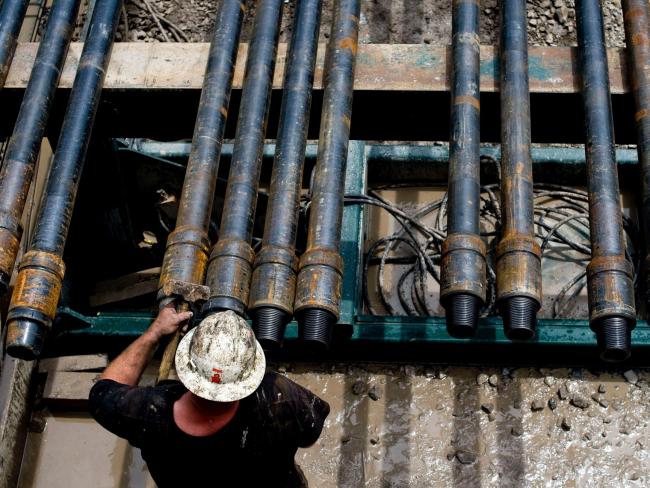(Bloomberg) -- Banks have begun trimming back the credit lines of America’s shale producers, further undercutting a beleaguered industry that’s been struggling to rebuild investor confidence.
Laredo Petroleum Inc (NYSE:LPI) and Oasis Petroleum Inc (NYSE:OAS) are among at least six producers whose ability to secure short-term loans against their oil and natural gas reserves have dropped by 10% or more, according to data in earnings statements and filings. The declines offer the first hint of results from a semi-annual bank review of the industry’s borrowing capacity that generally runs through December.
For the first time since 2016, an industry survey done prior to the review found most respondents expected to see declines. The noose is tightening at a time when producers have seen their market values plunge 21% this year. Meanwhile, at least 15 producers have already filed for bankruptcy during the year.
A substantive decline in borrowing base “can be a good precursor to potential bankruptcy because as capital markets stay closed off for these companies, the borrowing base serves as the only source of liquidity,” Billy Bailey, Saltstone Capital Management LLC portfolio manager, said by telephone.
Representatives for Laredo and Oasis did not immediately return phone and email messages seeking comment.
Bondholders and other lenders are increasingly wary of what’s unfolding in shale. Chesapeake Energy Corp (NYSE:CHK), once the nation’s largest gas supplier, warned earlier this month it may struggle to avoid bankruptcy. While fracking has turbocharged U.S. oil and gas output in recent years, that success has helped drive down oil prices to almost half what they were five years ago.
In some cases, producers are struggling under debt loads accumulated in earlier, more heady times. But other issues are at play as well: Some have drilled their best locations and are now turning to lower-quality sites. And some have been drilling wells too close together, resulting in a loss of overall performance.
At the same time, energy is the only sector yielding negative returns in the high-yield debt market, falling over 2% compared to a nearly 12% gain for its index.
In some cases, a borrowing-base cut can send a company spinning into bankruptcy. If a driller has already borrowed heavily on its credit line, and the new limit is lower than the outstanding balance, the company is overdrawn and has to repay the excess to the lender.
That’s difficult if the company is short on cash and doesn’t have other places to get it quickly. Such cuts helped drive Vanguard Natural Resources Inc. into bankruptcy twice, once in 2017 and again on March 31. In September, Alta Mesa Resources Inc. filed for bankruptcy after the Houston-based explorer’s borrowing base was cut 46% to $200 million.
“In 2019, we’ve seen another $15 billion going to bankruptcy debt at risk. I think those numbers will increase through the end of the year,” said Charles Beckham, a partner at Haynes & Boone LL, a law firm that undertakes an annual industry survey prior to the bank redeterminations. “We know that there are a handful of large companies that are on the edge.”
Decreased Borrowing Bases:
Lower crude prices are naturally expected to hurt the industry’s ability to borrow, with respondents from an October survey from Dallas-based Haynes & Boone estimating a 10% to 20% decrease on borrowing bases this season. Still, the hit may not end up being as bad as expected once the final reviews are completed.
“Based on the tough parameters the banks were putting in place, we thought the borrowing base redeterminations could actually have been worse than what actually transpired,” Bailey said. “It is noticeable, though, that this redetermination season was an initial warning shot to all companies.”
No changes at all in a company’s borrowing based can also signal a level of concern, according to Kraig Grahmann, a Haynes & Boone partner.
“There have been a lot of borrowing base reaffirmations where in the past, those borrowing bases have increased,” Grahmann said. “The banks have been sending a message to the borrowers that they are tightening up their credit extensions.”
Still, the fall review season is ongoing, and companies that are more overleveraged usually will take longer to reveal how their capacity might have changed.
“Fall borrowing base determination season really stretches from September to December in any given year,” Grahmann said. “Banks typically drag their feet on the more distressed companies. The tougher ones are the ones that get handled later during each season.”
